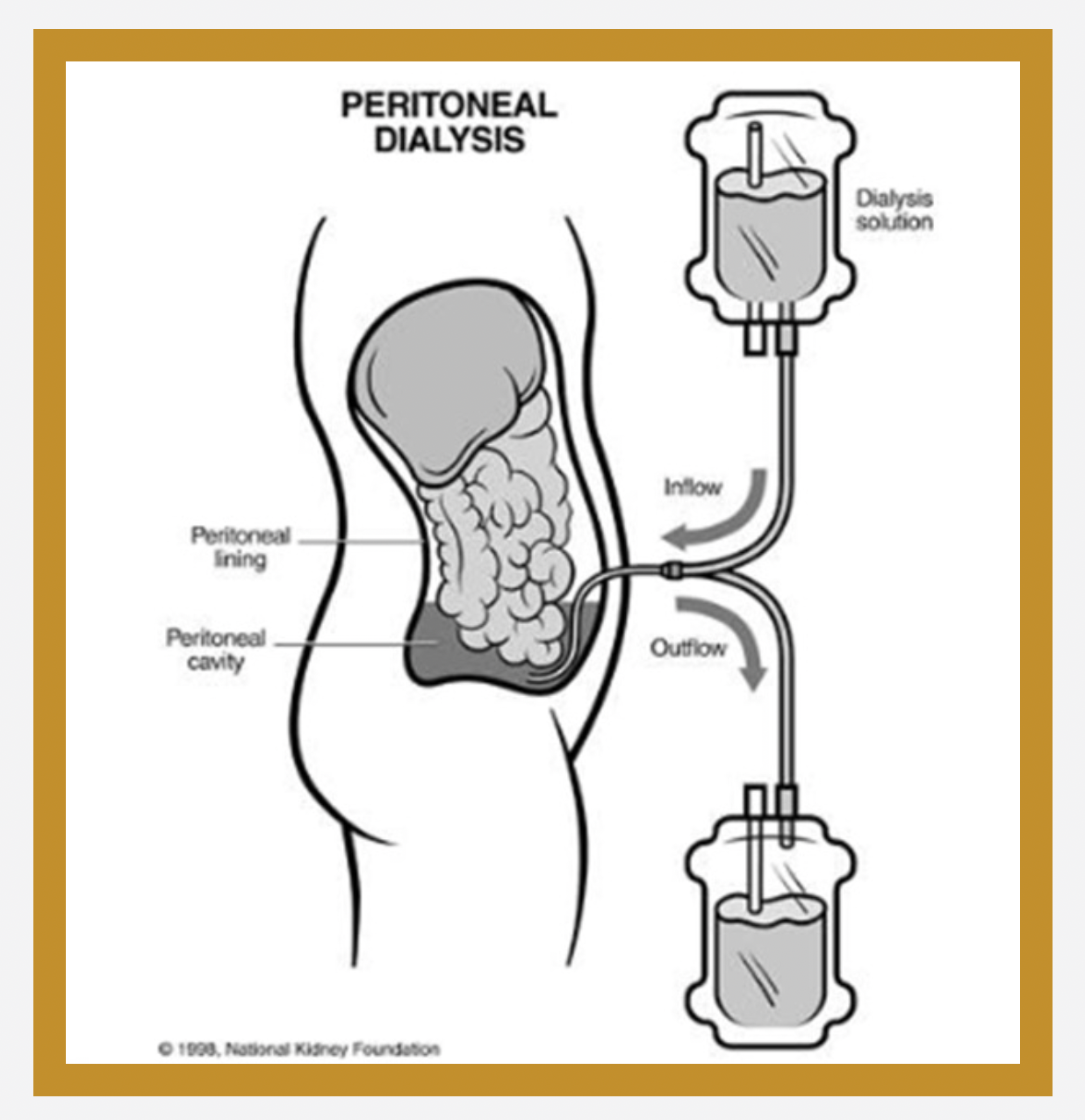Click HERE to download a PDF version of this blog.
How do you treat CKD?
There are four ways to treat CKD: peritoneal dialysis, hemodialysis, transplant, or conservative kidney management.
What is dialysis?
Dialysis is a life-saving treatment for kidney failure. It replaces some of the function of your kidneys:
Removes waste products from your body
Removes excess fluid from your blood
Improves balance of various chemicals and electrolytes
Dialysis does not cure kidney failure, but it may allow you to feel better and live longer than without dialysis. Regardless of type of dialysis, you can still enjoy activities/hobbies, exercise, work/study, travel, and care for your family.
What is peritoneal dialysis?
Peritoneal dialysis uses the lining of your abdominal cavity to filter the blood - blood is cleaned inside your body, not outside. This treatment is done at home, and requires surgical placement of a PD catheter (outpatient procedure).
Peritoneal dialysis provides a more gentle dialysis and can be done using gravity or using a machine overnight. It must be done every day.
This process requires several exchanges of dialysate fluid every day:
Abdomen is filled with dialysate fluid through the catheter.
Fluid stays within the abdominal cavity (“dwell“). During this time, you can go about your day while the fluid dwells (4 hours).
Afterward, fluid is drained out.
On average, 4 exchanges per day.
There are two different types of peritoneal dialysis. The first type is continuous ambulatory peritoneal dialysis (CAPD), which uses the blood vessels in the lining of your abdomen (peritoneum) to filter waste with a solution called dialysate. CAPD is done during the course of your day, uses gravity and requires no machine.
The second type of peritoneal dialysis is automated peritoneal dialysis (APD) and uses a machine (cycler) to exchange the fluid overnight while you sleep.
What are the pros and cons of peritoneal dialysis?
Pros:
May help to preserve residual kidney function
Fewer dialysis-related side effects compared to hemodialysis
You can do it at home
You’re able to travel
This is a more gentle dialysis, so fewer dialysis-related side effects compared to hemodialysis
No needles required
More flexibility with dietary recommendations
Cons:
There are no days off
There are swimming/bathing restrictions
May cause blood sugar fluctuations
Requires storage space at home
Risk of infection with catheter
For travel, you’re required to transport all dialysis materials +/- machine if you’re using a cycler
What support will i have with peritoneal dialysis?
Despite being done at home, you will have access to a robust team to help with your care. This includes a dedicated physician (nephrologist), dialysis nurse, dietician, and social worker. You will see these team members for monthly visits, and have access to them via phone when needed, too.
HOW CAN INTERMED CONSULTANTS HELP YOU THROUGH YOUR KIDNEY CARE?
InterMed Consultants has been providing renowned kidney care in the Minneapolis area, as well as greater Minnesota, since 1979. From new patient consultations to ongoing follow-up and education, we provide expert care for all of your kidney needs.
For more information or to schedule an appointment, please contact us (952) 920-2070.


